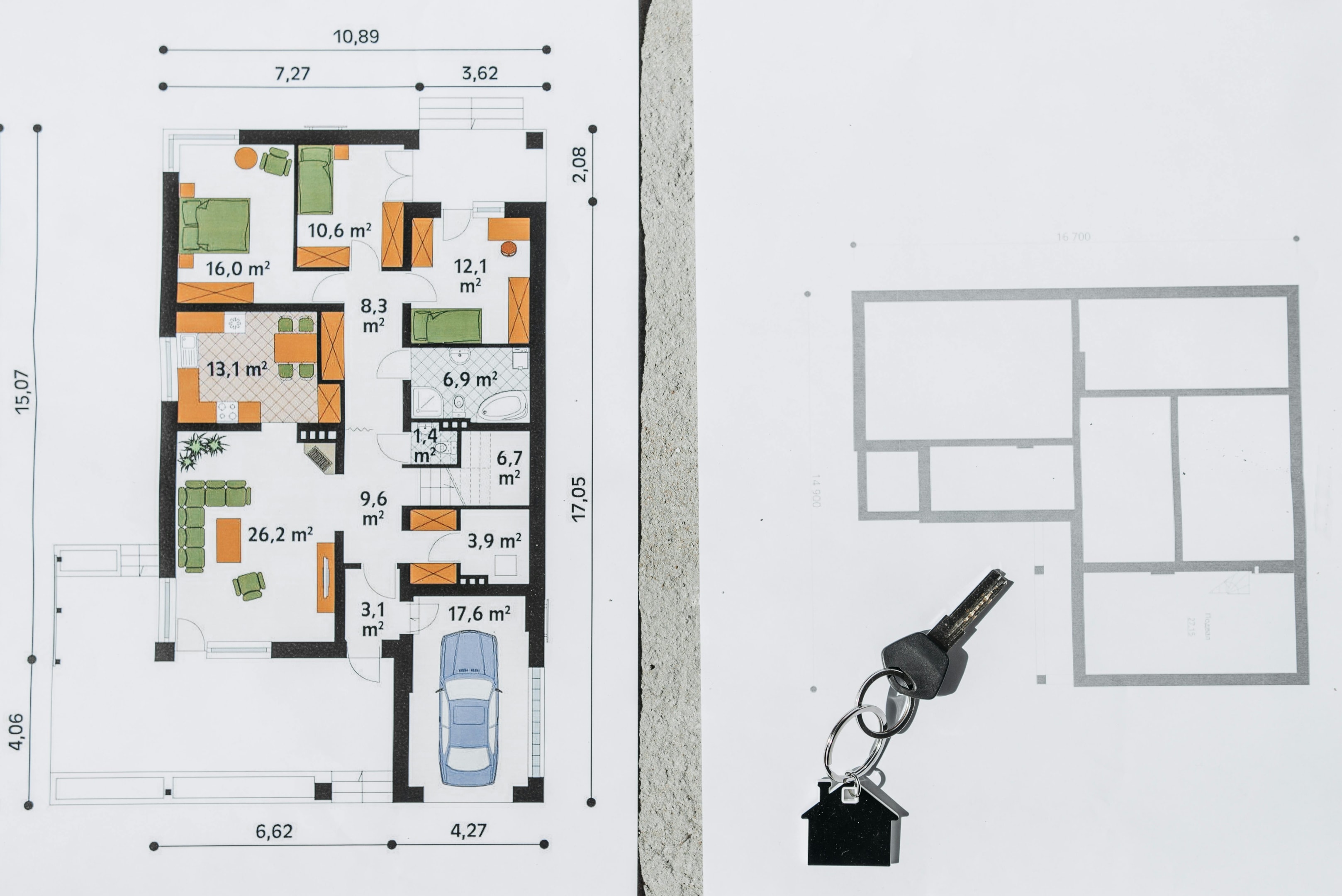Managing Rental Properties: A Comprehensive Guide
Introduction
Owning rental properties is an excellent way to build wealth and create passive income. However, managing them effectively, especially as an investor, is the key to maximizing your returns and minimizing stress. Let's dive into the essentials of rental property management, from finding the right tenants to handling maintenance and scaling your business, while still maintaining a focus on growing your investment business.

Acquiring a Rental Property
Acquiring a rental property is a significant step in building your real estate investment portfolio. Begin by assessing your financial situation to determine your budget and financing options. Consider securing a mortgage pre-approval to streamline the buying process. Next, research different property types and locations to identify areas with strong rental demand and potential for appreciation. To figure out which type of property might be a good fit for you, see Top Tips to Successfully Invest in Rental Property.
It's essential to conduct a thorough market analysis to understand local market trends and fair market rent prices. Engage with a real estate professional who specializes in investment properties to gain insights and access to potential deals. Once you've identified a promising property, perform due diligence by inspecting the property condition, reviewing any existing lease agreements, and evaluating potential rental income and expenses. With careful planning and research, acquiring a rental property can be a rewarding investment that contributes to long-term financial growth. To learn more, read Essential Tips for Buying Investment Properties.
Getting Started with Rental Property Management
Preparing Your Property
Before you can rent out a property, it needs to be move-in ready. Ensure the property meets local safety codes, repair any damage, and consider upgrades like modern appliances or fresh paint to attract high-quality tenants. A well-prepared property not only appeals to prospective tenants but also sets the groundwork for a successful rental business. Consider the property's curb appeal, and invest in landscaping to make a positive first impression. Additionally, evaluate the property's energy efficiency and explore options for improvements that could lower utility costs, enhancing the property's desirability and potentially allowing for a higher rent price.
Understanding Legal and Regulatory Requirements
Navigating landlord-tenant laws can be tricky, but it's essential. Familiarize yourself with zoning regulations, rental licensing requirements, and fair housing laws to avoid costly legal issues down the road. Understanding local landlord tenant laws is crucial for managing rental properties effectively. Stay updated with any changes in regulations to ensure compliance. This knowledge not only protects you legally but also helps in managing tenants more efficiently. Consider consulting with a legal expert to draft a customized lease agreement that covers all necessary aspects and adheres to the legal framework.

Setting Up for Success
Establishing a Rental Agreement
A well-crafted lease agreement protects both you and your tenant. Include details about rent due dates, late fees, maintenance responsibilities, and rules about pets or smoking. A comprehensive lease agreement is a vital legal document that outlines the rights and responsibilities of both parties. It should also address security deposits, procedures for handling tenant complaints, and the process for routine tasks and major repairs. Having a clear, detailed lease agreement helps in managing rental properties smoothly and reduces the potential for disputes.
Determining Competitive Rent Prices
Research local market rates to set a fair and competitive rent price. Overpricing can lead to vacancies, while underpricing leaves money on the table. To determine a fair rent price, analyze similar properties in the area and consider factors such as location, amenities, and market trends. Understanding the fair market rent helps in setting a competitive price that attracts quality tenants while ensuring a steady rental income. Adjust your rent price periodically based on market conditions to maintain competitiveness.
Marketing Your Property Effectively
Use online platforms, social media, and even old-fashioned yard signs to market your rental. High-quality photos and a detailed description highlighting the property's best features can make a huge difference. Crafting an appealing rental listing is key to attracting potential tenants. Highlight unique selling points, such as proximity to public transportation or recent renovations. Utilize property management software to streamline the marketing process and enhance your reach by automating listing distribution to multiple platforms. This can help ensure your property is seen by a wider audience, increasing the likelihood of attracting quality tenants quickly.

Scaling Your Rental Business
Managing Multiple Properties
As your rental property portfolio expands, staying organized becomes essential. Implement a comprehensive system to track leases, maintenance schedules, tenant communications, and rent collection. Utilize tools like spreadsheets or specialized rental property accounting software to manage your data efficiently. By maintaining detailed records, you can easily manage multiple properties and ensure all aspects of property management are covered. Regularly review your property management strategies to identify areas for improvement, ensuring your rental business operates smoothly and profitably.
Leveraging Technology and Property Management Software
Technology plays a pivotal role in modern rental property management. From rent collection to maintenance requests, property management software can streamline operations, saving time and reducing errors. Look for software that offers features like online rent payments, automated reminders, and maintenance tracking. These tools not only enhance efficiency but also improve tenant satisfaction by providing convenient services. Additionally, consider integrating an accounting system to manage rental income, expenses, and tax reporting, ensuring your financial records are accurate and up-to-date.
Hiring Property Management Professionals
If managing multiple properties becomes overwhelming, especially considering many investors are continually involved in acquiring more properties, hiring a property manager might be a wise decision. Property management professionals can handle day-to-day operations, allowing you to focus on growing your real estate investment portfolio. They bring extensive knowledge of landlord-tenant laws, tenant screening processes, and fair housing regulations, ensuring compliance and minimizing legal issues. A property manager can also assist in setting competitive rent prices, marketing your properties, and managing tenants effectively. By leveraging their expertise, you can enhance the performance of your rental properties and achieve a successful landlord experience.

The Balance of Investing and Managing Rental Properties
Being both an investor and a manager of your rental properties requires a delicate balance. As an investor, your primary focus is on growing your real estate investment portfolio and maximizing returns. This involves analyzing market trends, identifying potential investment opportunities, and making strategic decisions about property acquisitions. However, managing rental properties demands attention to day-to-day operations, tenant relations, and property maintenance.
To effectively balance these roles, it's essential to prioritize time management and leverage technology. Utilize property management software to automate routine tasks such as rent collection, maintenance scheduling, and tenant communication. This not only saves time but also ensures efficiency in managing multiple properties. Additionally, consider delegating certain management responsibilities to a property management company or hiring a property manager if your portfolio becomes too large to handle alone.
Maintaining a clear distinction between your investor and manager roles is crucial. Set specific times or days to focus on investment activities, such as researching new properties or reviewing financial performance. Likewise, allocate time for managing rental properties, ensuring tenant needs are met promptly and properties are well-maintained. By effectively balancing these roles, you can achieve success in both investing and managing rental properties, leading to a thriving and profitable rental business. To learn more about the investment side, read Top Real Estate Investment Opportunities You Can't Miss.

Conclusion
Managing rental properties may seem overwhelming, but with the right strategies and tools, it can be a rewarding experience. From acquiring the right investment property to finding reliable tenants to maintaining the property and managing finances, every step contributes to your success as a landlord.
Embrace technology, consider professional management services, and continuously refine your approach to rental property management all while ensuring there is a balance with your role as a real estate investor. By doing so, you can maximize rental income, ensure tenant satisfaction, and build a thriving rental property business.